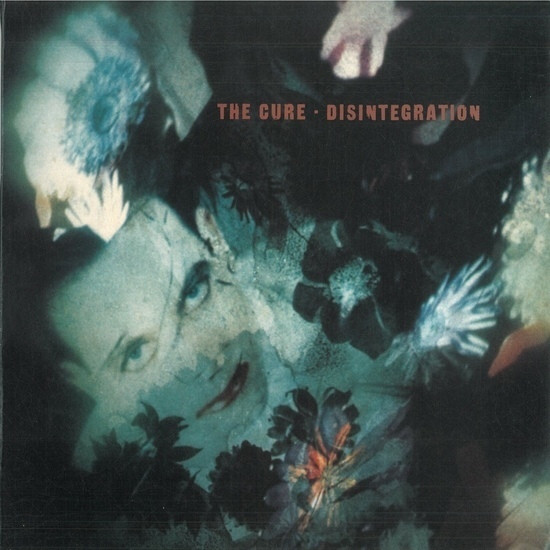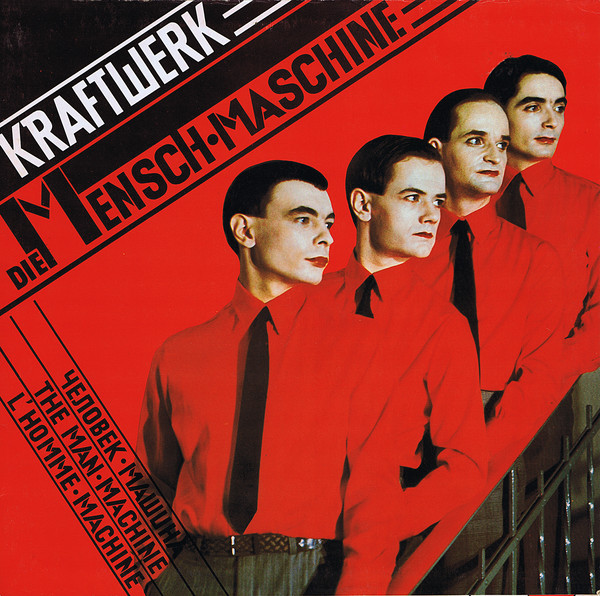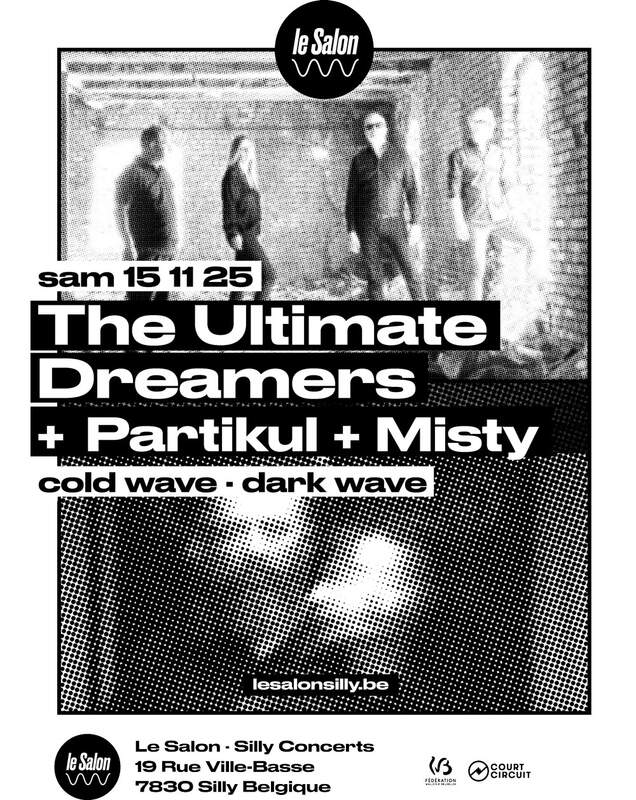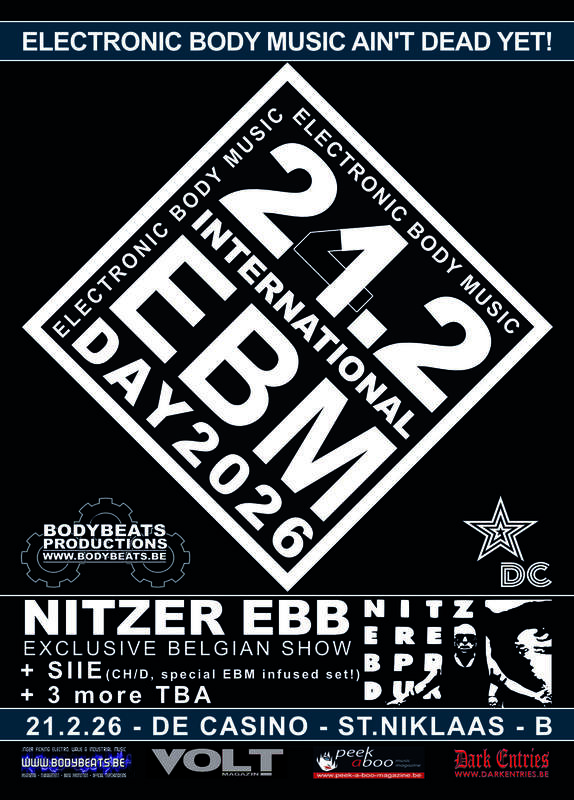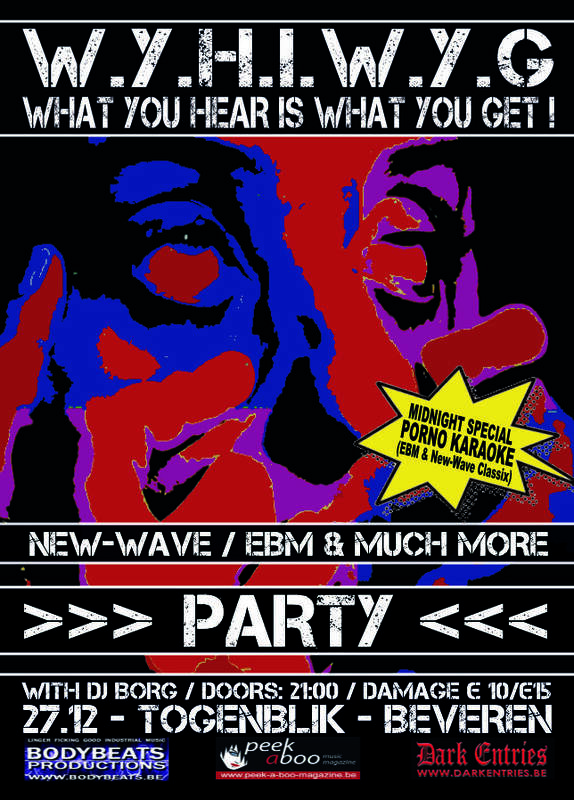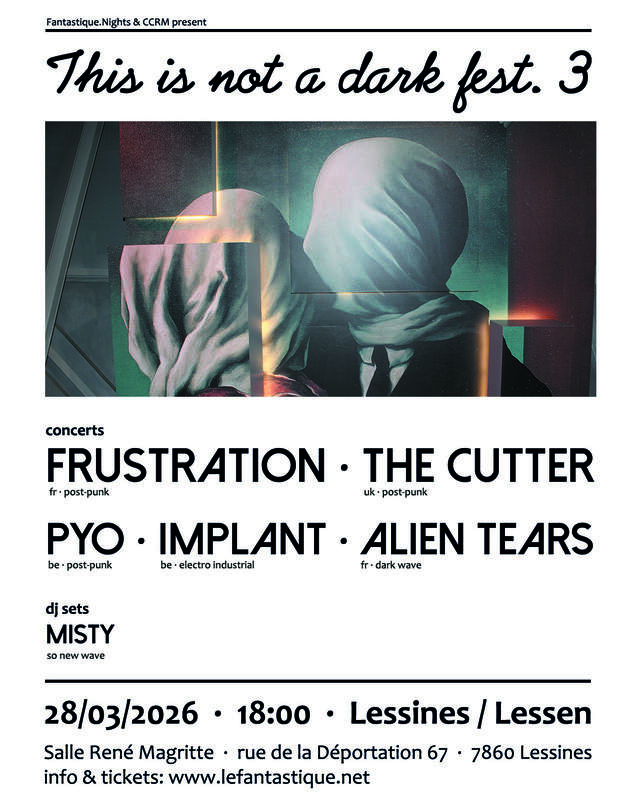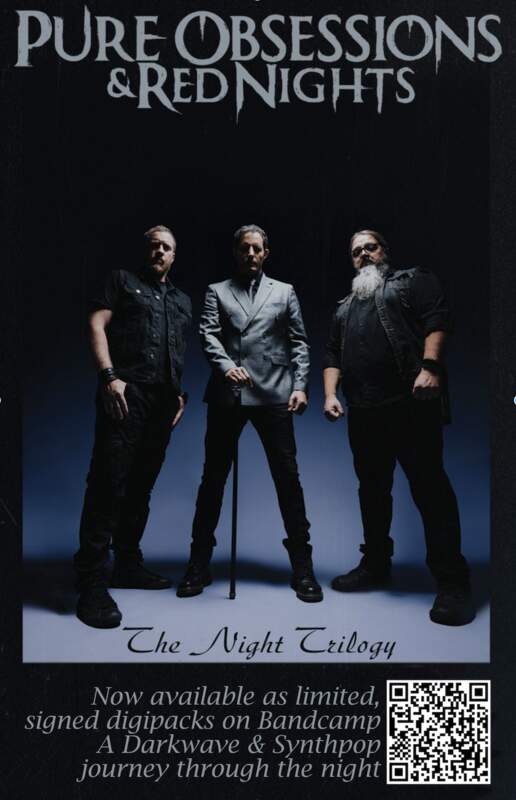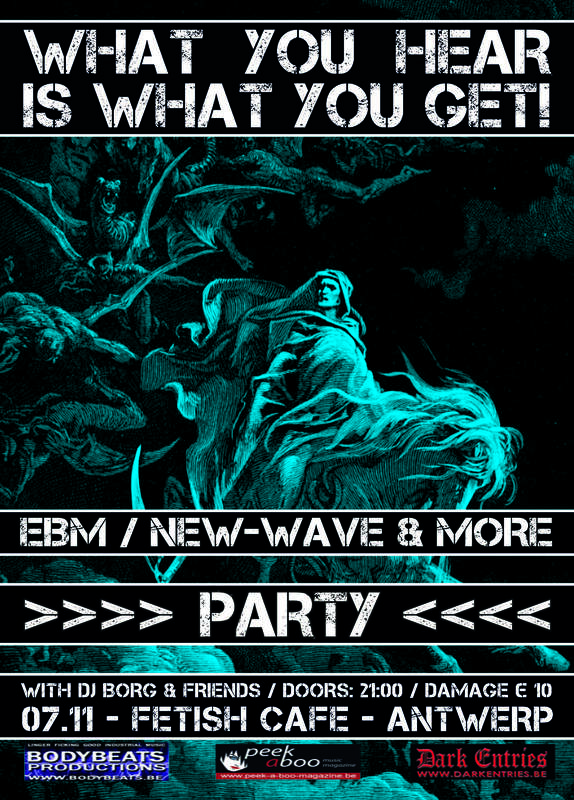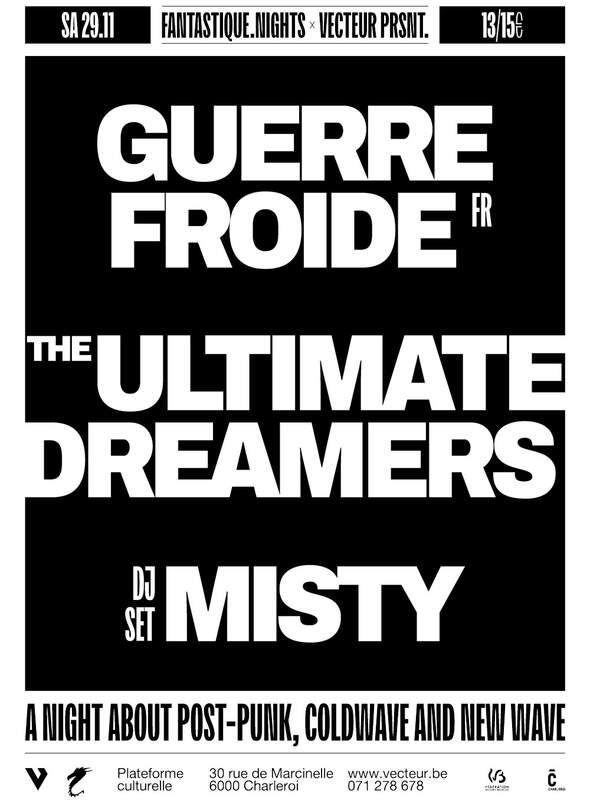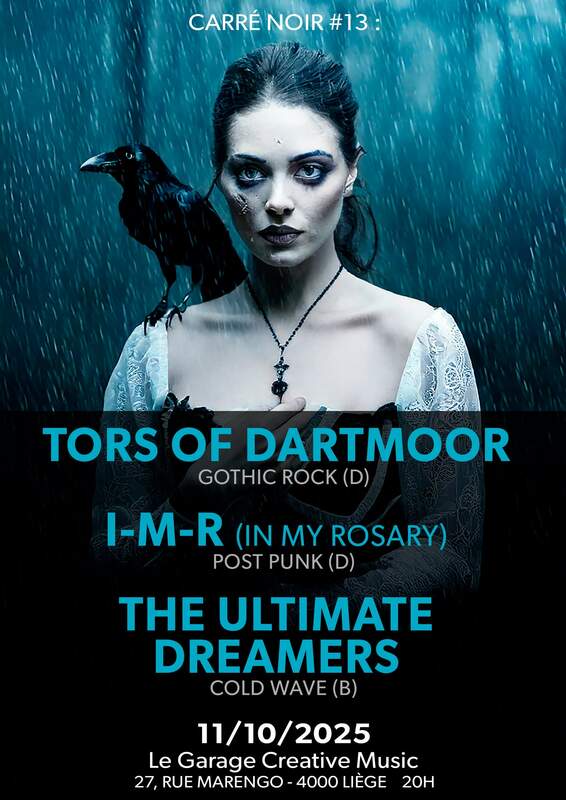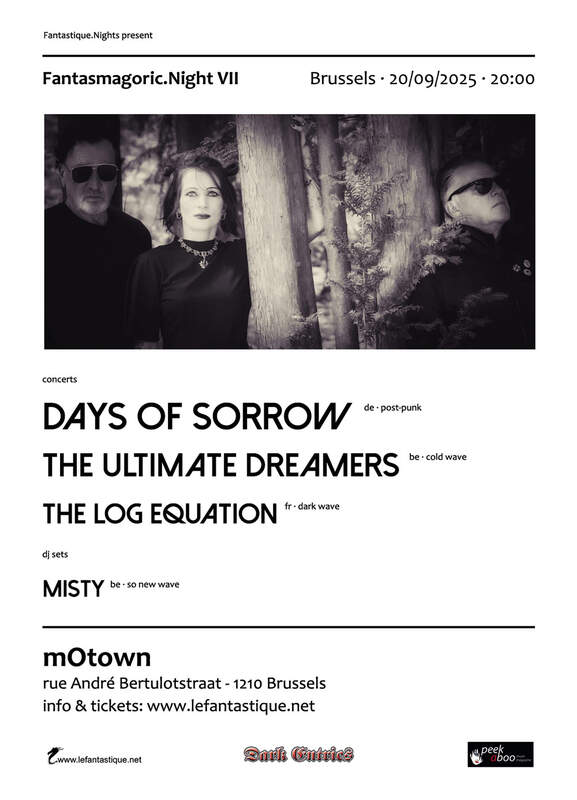On this day, 36 years ago, The Cure released their 8th studio album Disintegration (Fiction Records, 2 May 1989). The record marks a return to the introspective and gloomy style the band had established in the early 1980s. As he neared the age of 30, vocalist and guitarist Robert Smith had felt an increased pressure to follow up on the group's pop successes with a more enduring work. This, coupled with a distaste for the group's newfound popularity, caused Smith to lapse back into the use of hallucinogenic drugs, the effects of which had a strong influence on the production of the album. The Cure recorded Disintegration in Oxfordshire, with co-producer David M. Allen who was The Cure’s producer from late 1988 to early 1989. Following the completion of the mixing of the album, founding member Lol Tolhurst was fired from the band. Disintegration is characterized by a significant usage of synthesizers and keyboards, slow, "droning" guitar progressions and Smith's introspective vocals.
Disintegration became the band's first commercial peak, charting at number three in the United Kingdom and at number 12 in the United States, and producing several hit singles including "Lovesong", which peaked at number two on the Billboard Hot 100. It remains The Cure's highest selling record to date, with more than three million copies sold worldwide.
Disintegration - Tracklist
|
1. |
Plainsong |
5:12 |
|
2. |
Pictures of You |
7:24 |
|
3. |
Closedown |
4:16 |
|
4. |
Lovesong |
3:29 |
|
5. |
Last Dance |
4:42 |
|
6. |
Lullaby |
4:08 |
|
7. |
Fascination Street |
5:16 |
|
8. |
Prayers for Rain |
6:05 |
|
9. |
The Same Deep Water as You |
9:19 |
|
10. |
Disintegration |
8:18 |
|
11. |
Homesick |
7:06 |
|
12. |
Untitled |
|
|
Chart positions (1989) |
Peak |
|
Australian Albums |
9 |
|
Austrian Albums |
5 |
|
Canada Top Albums/CDs |
22 |
|
Dutch Albums |
3 |
|
Finnish Albums |
16 |
|
French Albums |
3 |
|
German Albums |
2 |
|
New Zealand Albums |
6 |
|
Norwegian Albums |
7 |
|
Spanish Albums |
4 |
|
Swedish Albums |
10 |
|
Swiss Albums |
4 |
|
UK Albums |
3 |
|
US |
12 |
This month, 47 years ago, Throbbing Gristle released their debut 7” single “United/Zyklon B Zombie" (May 1978) through the band's own label, Industrial Records. After approximately 20,000 sales, re-pressing was taken over by Rough Trade although be it with a different mix making Cosey Fanni Tutti's guitars sound louder in the centre section of "Zyklon B Zombie" as an improvement upon the original version.
A third pressing was in white vinyl (1,000 copies) and clear vinyl (1,000 copies) and features around two minutes of rain and train sounds at the end of side two.
"United" was featured on Throbbing Gristle's second studio album D.o.A: The Third and Final Report of Throbbing Gristle, be it in a sped-up version lasting only 16 seconds.
Both tracks were later released on the CD re-version of The Second Annual Report (1991) in their original versions.
The single reached 39th position in the UK Indie Chart
United (7")
1. United 4:03
2 Zyklon B Zombie
DISCOGS
Throbbing Gristlle:
Cosey Fanni Tutti
Chris Carter
Genesis P-Orridge († 14/03.2020)
Peter Christopherson († 24/11.2010)
Following the success of their single, "Sauerstoff", Spanish industrial metal band, HASSWUT is proud to announce the arrival of their highly-anticipated, release also titled, Sauerstoff.
The album, Sauerstoff represents the internal struggle against anxiety, depression, and emotional oppression. Its title refers to the sensation of lacking oxygen, that pain in the chest that paralyzes us and prevents us from moving forward. Through each song, HASSWUT explores different aspects of both personal and social struggles.
Each song is a cry of rebellion, a surge of intensity that urges you to breathe, break your chains, and face the world with newfound strength. From the relentless aggression of “Koloss” to the dark melancholy of “Eigengrau”, Sauerstoff is an album that leaves no one indifferent. Sauerstoff is an explosion of energy, rage and emotion that will grip you from the very first note. It’s a powerful fusion of industrial metal and electronic music,
HASSWUT's new album, Sauerstoff is available for pre-order on CD and vinyl LP editions as well as on all major digital platforms worldwide. Release date is April 21 on Negative Gain Productions.
Order HERE: https://hasswut.bandcamp.com/
Follow HASSWUT:
https://open.spotify.com/artist/551PazHmfLOfvUkQdMGJpF
https://www.facebook.com/hasswut
https://www.instagram.com/hasswut/
On this day, 47 years ago, Kraftwerk released their iconic album The Man-Machine or Die Mensch-Maschine as the original german pressing was called. The Man-Machine is Kraftwerk’s seventh studio album and was released on 28 April 1978 by their own label Kling Klang. A further refinement of their mechanical style, the album saw the group incorporate more danceable rhythms and less minimalistic arrangements. It includes some of Kraftwerk’s best known singles ‘The Model’ and ‘The Robots’.
In Germany the album peaked at the 12th position in the Offizielle Album Top 100 and reached the 26st position in the German Offizielle Top 100 year-end album charts. The first German pressing was on red vinyl.
In the UK the albums took a slow start, peaking at the 9th position of the UK Albums Chart only 8 months later in February 1982, making The Man-Machine Kraftwerk’s band's second highest-peaking album in the United Kingdom since Autobahn (1974).
The Man-Machine was certified gold by the British Phonographic Industry (BPI) on 15 February 1982, denoting shipments in excess of 100,000 copies.
The Man-Machine is the first Kraftwerk album to have Karl Bartos co-credited as a composer along with Ralf Hütter and Florian Schneider. Emil Schult co-wrote the lyrics for 'The Model'. AllMusic described the album as 'closer to the sound and style that would define early new wave electro-pop', and noted its 'feel of a divided concept album', with some songs (such as the title track and 'The Robots') exploring the science fiction-esque links between humans and technology', and others (such as 'Neon Lights' and 'Metropolis') celebrating “the glamour of urbanization.
The artwork for the cover was produced by Karl Klefisch, based on the work of the Russian suprematist El Lissitzky. The back cover image is an adaptation of a graphic from Lissitzky's book for children About Two Squares: A Suprematist Tale of Two Squares in Six Constructions.[9][10]
Reviewing the album in 1978, NME stated: 'The Man-Machine stands as one of the pinnacles of 70's rock music', adding that 'the sparsity of the lyrics leaves the emphasis squarely on those robot rhythms, chilling tones and exquisite melodies.'
AllMusic wrote that the album is 'less minimalistic in its arrangements and more complex and danceable in its underlying rhythms' than the group's previous works, and noted its 'tremendous impact' on subsequent synth-pop artists.
In October 2009, a remastered edition of the album was released on CD and digitally by Mute Records (EU) and by Astralwerks (US) United States, followed shortly after by heavyweight vinyl editions.
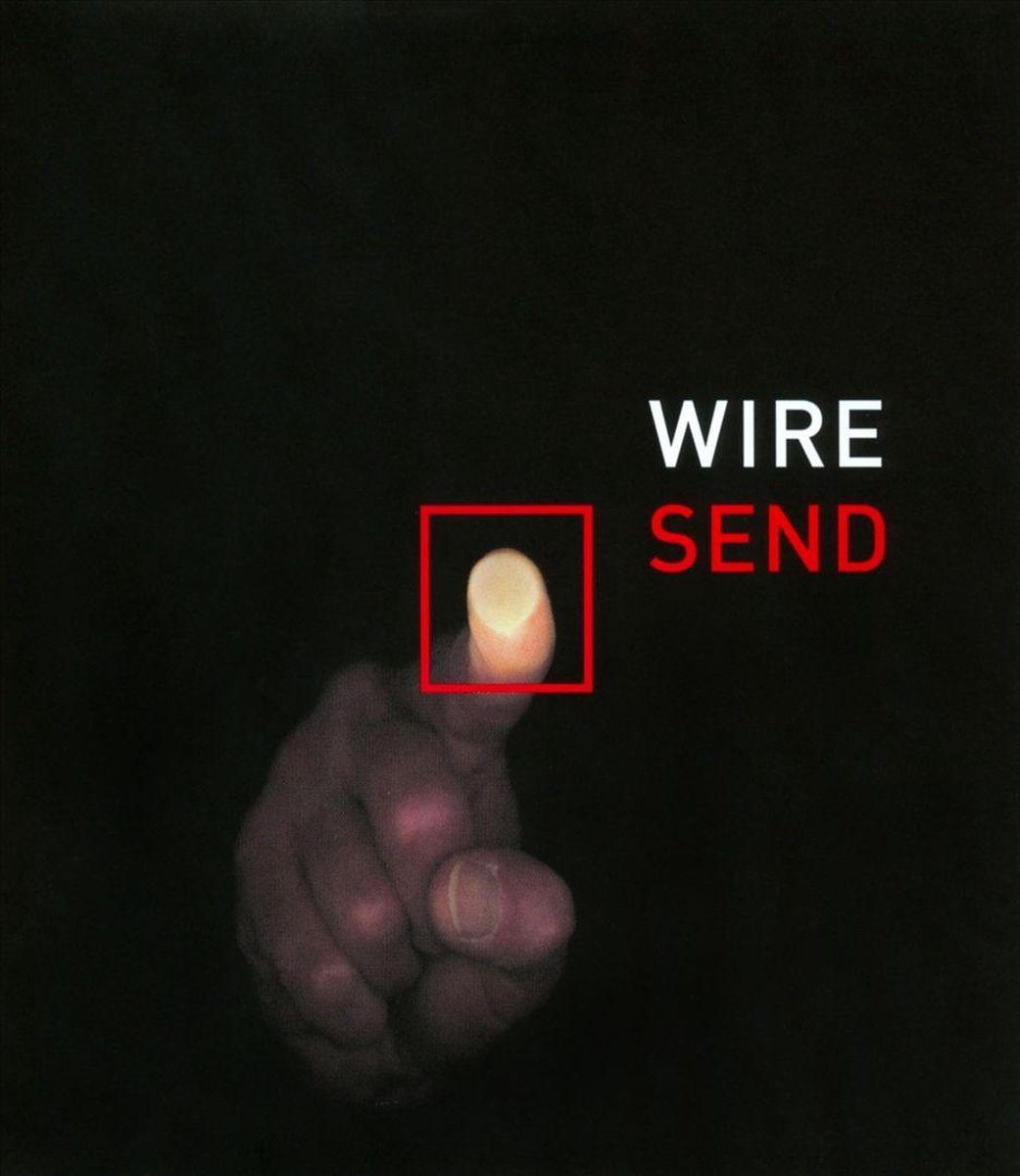
On this day, 22 years ago, Wire returned after a hiatus of a decade with their 10th studio album, Send!
On this day, 22 years ago (28 April 2003), Wire released their tenth studio album Send. It was their first recording, with the original four piece line-up, since the Manscape (1990). Drummer Robert Gotobed quit after the release of Manscape because he felt the musical direction of Wire increasingly relied too much on drum machines and loops. It was also the first full-length release by any incarnation of the group since 1991! The album contains seven songs previously released in 2002 on the EPs Read & Burn 01 and Read & Burn 02, and four songs exclusive to this release.
The initial first 2000 mail-order copies of the album came with a bonus live album WIRE - Metro, Chicago, 14 September 2002. Reportedly this inclusion was made to boost the sellings since the majority of the tracks on Send had already been released as the two Read & Burn EPs.
The album was critically acclaimed by many music magazines and received an overall 4/5 star quotation.
The British music magazine Mojo ranked Send at 10 on their best albums of 2003 list. The album also scores 84/100 on the Metacritic website, signifying "universal acclaim".
Send (Original 2003 Digi-Pack CD tracklist)
|
|
|
|
|
1. |
"In the Art of Stopping" |
3:34 |
|
2. |
"Mr Marx's Table" |
3:02 |
|
3. |
"Being Watched" |
2:57 |
|
4. |
"Comet" |
3:17 |
|
5. |
"The Agfers of Kodack" |
3:11 |
|
6. |
"Nice Streets Above" |
3:45 |
|
7. |
"Spent" |
4:43 |
|
8. |
"Read & Burn" |
2:34 |
|
9. |
"You Can't Leave Now" |
3:41 |
|
10. |
"Half Eaten" |
1:58 |
|
11. |
"99.9" |
7:42 Personal: |
Wire
Colin Newman
Graham Lewis
Bruce Gilbert
Robert Grey (aka Robert Gotobed)


